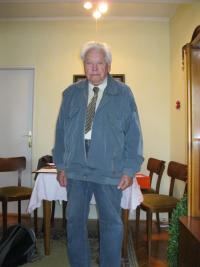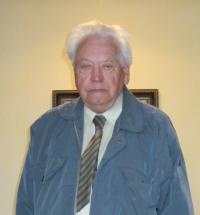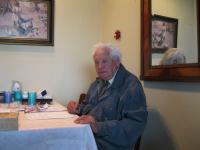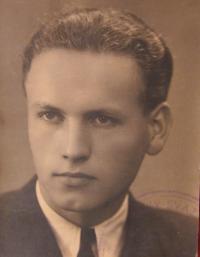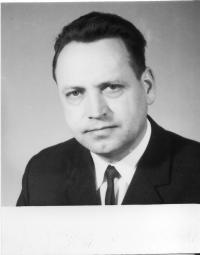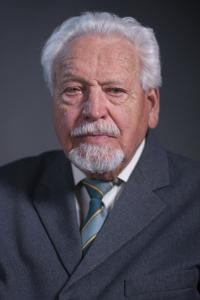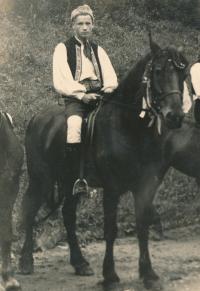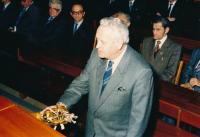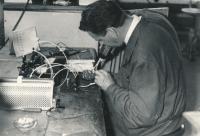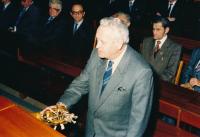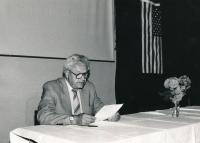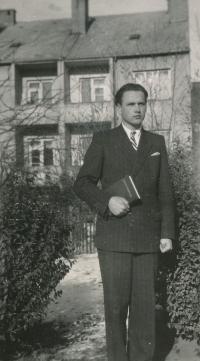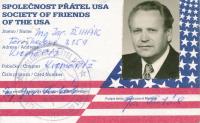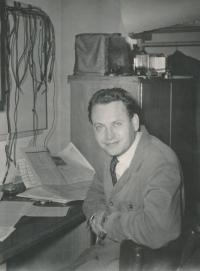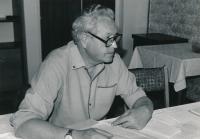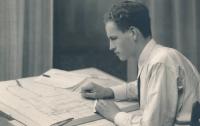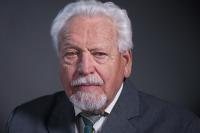We had rubber boots, and during the shift we‘d always pour blood and sweat out from them.

Stáhnout obrázek
Ing. Jaroslav Řihák was born in 1927 in Těšánky near Kroměříž. Already as a child he was technically apt, and so after secondary technical school, he started studying at the University of Electrical Engineering in Brno. After February 1948 however, he was expelled from the school by its action committee. Thanks to his technical abilities and due to the intercession of the chairman of the Party organisation of the company he worked at, he returned to university. After graduating, he took part in meetings of the Catholic youth, and he kept in touch with several priests. On the 19th of May 1952, one week before the defence of his diploma thesis, he was arrested. Over the course of a few days in Prague, from the 28th of October till the 1st of November 1952, he was sentenced to 9 years of prison - part of one of the biggest „monster trials“ against the Church, called Bárta and Co. During the trial, 9 priests and 22 lay persons were sentenced to a total of 330 years of prison. Among others ThDr. Josef Zvěřina. Jaroslav Řihák spent more than three and a half years in prisons in Vinařice near Kladno and in Rtyně v Podkrkonoší [on the foothills the Giant Mountains - transl.]. He worked in mines in very harsh conditions and with a minimum of food. He witnessed several fatal accidents of his fellow inmates. He was released on probation in the spring of 1956. After that, he never did find a job worthy of his abilities. He worked as an electrician at a sugar refinery, and at Pal-Magneton in Kroměříž. He was rehabilitated in 1990 and in the same year, after passing a state final exam, he was at last awarded the title Master of Engineering [literally „Engineer“ - transl.].
